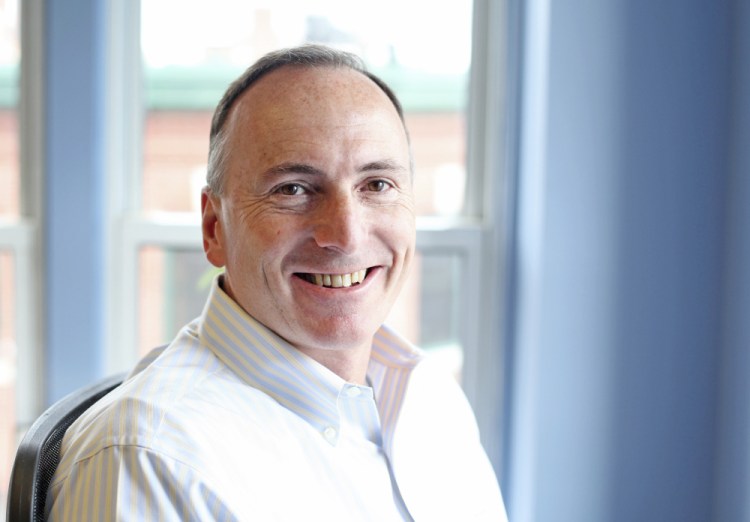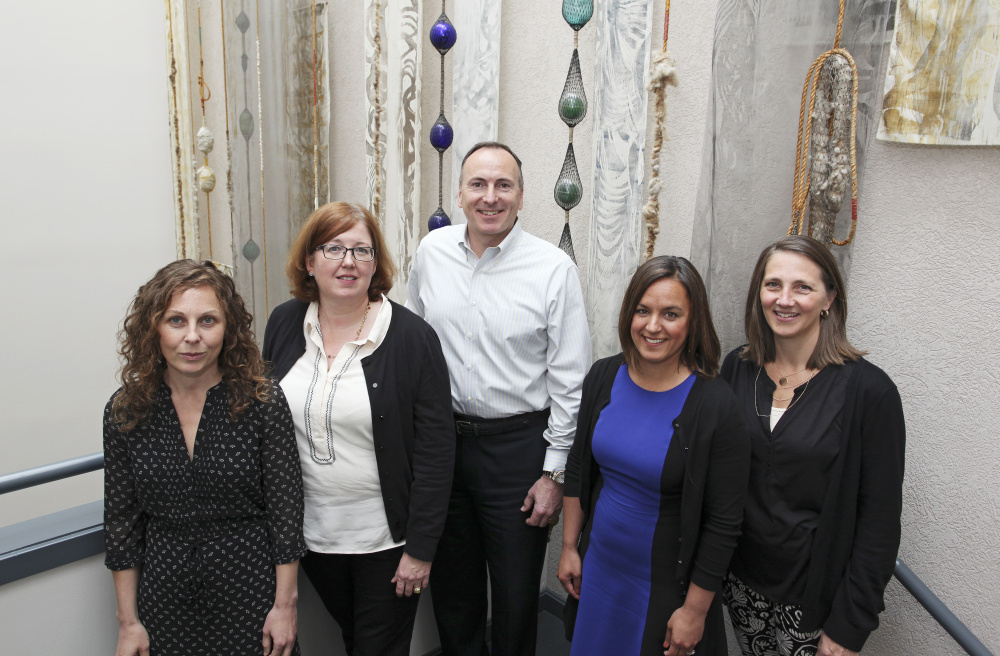On the morning of March 22, the day of the Brussels terror bombings, Portland businessman Ted Wirth woke up to a phone full of anxious texts and emails. Would the show go on?
Diversified Communications was just five weeks away from opening its biggest trade show of the year in the Belgian capital when terrorists set off three nail bombs at the Brussels airport and a downtown train station, killing 35 people and injuring more than 300. Wirth, the company’s chief executive, scrambled to learn the whereabouts of his staffers – none was in Belgium that day – and to check on the well-being of Diversified’s corporate partners. He wondered how, or even if, the company should move ahead with Seafood Expo Global, a make-or-break event for many in the international seafood industry as well as his own company.
“That first day we weren’t sure what we were going to do,” Wirth said. “We knew we were going to have to make some decisions. If there had been another attack within those five weeks, we would have had to shut it down.”
Diversified, which has its headquarters on Free Street in Portland, had faced trade show challenges before. In 2005, it called off its 15,000-person work-boat show when Hurricane Katrina immobilized the host city of New Orleans, but that was its only cancellation. Its other trade shows have survived March blizzards in Boston and SARS virus-related travel bans to Toronto in 2003. The Brussels expo has endured volcanic ash clouds closing European airspace in 2010, a one-day transit strike in 2015, and PETA and Greenpeace protest rallies aimed at exhibitors from countries accused of clubbing seals.
But challenges are nothing new for this 67-year-old company, which started with a Bangor radio station and has grown to include 850 employees in seven countries stretching from Canada to Australia. Diversified produces more than 100 global trade shows, owns two television stations, publishes specialty magazines and has become North America’s biggest provider of continuing education for primary care doctors. In the 1980s, the company began to shift from media to producing trade shows, and that now makes up about 80 percent of its overall business. Wirth declined to disclose Diversified’s annual revenues.
The company was founded by former Maine Gov. Horace Hildreth. Since 1970, it has had its hand in the maritime industry, whether it has been reporting on the Gulf of Maine fishery, printing National Fisherman magazine or managing the industry’s biggest seafood shows, both in North America and the world. That history helped Wirth understand exactly how important the Brussels expo was for many of the buyers and sellers, and how many people in the supply chain that harvested lobsters and other seafood – from lobstermen to buoy makers to trap makers to dealers – depend on brisk sales for their economic livelihoods.
More than 22,000 seafood suppliers and buyers from 143 countries around the globe, including such key buyers as Costco, Intermarche and Marks & Spencer, had already made plans to attend the Brussels expo. Fishing countries planned to set up elaborate pavilions to boost exports. Diversified knew that many exhibitors count on the show to secure the bulk of their annual sales, while buyers used it as a chance to discover hot new products, compare prices and quality of competing suppliers, and reduce costly buying trips to fishing regions around the world.
With that in mind, Diversified’s executive vice president, Mary Larkin, reached out to Brussels city officials, its local security team and venue hall operators to find out as much as possible about what was happening on the ground and what steps could be taken, if any, to salvage the event. City leaders wanted the show to go on. The attacks had wounded the country’s economy, and its pride, and city leaders hoped a successful and safe expo would help Brussels move past the bombings, Wirth said. They vowed to do whatever it might take to help Diversified keep the show, and its participants, alive and well.
A week after the bombings, Diversified made the decision. In the absence of another attack, the show would go on. But would anybody come?
ADAPTING QUICKLY TO A CRISIS
With the airport closed to most traffic, Diversified rerouted exhibitor and visitor flights through airports in cities such as Paris, London and Berlin, and arranged for train travel or charter buses into Brussels. It used the same buses it had hired the year before to survive the transit strike to carry show visitors and exhibitors from their hotels to the Brussels Expo. It used six bomb-sniffing dogs and hired extra security guards, in addition to city police, to patrol the expo move-in period and the show, search the bags and trucks going in and out of the expo, and wand visitors in a newly built security corral.
Wirth told the staff that no one was required to make the trip to Brussels, but 35 team members decided to go. Diversified sent the team to Amsterdam to free up commercial flights for the thousands of expo visitors trying to make their way to the Brussels Expo Hall. They stayed in a single, high-security hotel, took charters to and from the venue and used new software added to their phones that enabled teamwide texts to save time during a crisis. And everyone registered with the U.S. Embassy.
“What became clear was that everybody reacts differently to something like this at the end of the day,” said Liz Plizga, Diversified’s group vice president for seafood events. “Each day, people’s confidence grew about going. People who went to the event, by the time they went, felt good about the efforts in place. We had that understanding that life goes on and it’s important to maintain business. It was a personal decision, to go or not to go, but we all decided to do it and I think we were all happy we did.”
Diversified created a page on the expo website where it posted daily security updates for exhibitors and visitors, as well as to communicate with the industry media writing about the effects of the bombings on the upcoming show. This was intended to reassure anxious participants and prepare them for the expanded security measures, some of which would require additional travel time, Wirth said. The team also posted updates on which key buyers and exhibitors said they still planned to attend the show, hoping to persuade those who were undecided about attending to follow their example.
“The daily updates to the website were well received,” said Christine Pederson, marketing director for Diversified’s seafood group. “It was an easy way for people to find information. A lot of people told us it inspired confidence in their decision to attend.”
A $1 MILLION UNFORESEEN EXPENSE
On the days leading up to the opening, Diversified watched as 1,600 exhibitors – about 300 fewer than the number who had registered – hauled in and put up their displays, patiently enduring random truck searches, repeated wandings and bag searches. The exhibitors bought 35,862 square meters of exhibit space, or about 5 percent less than what had been reserved. About 12,000 people signed in as visitors to the show – held April 26-28 – roughly 2,000 fewer than the number who had initially registered. The drop in attendance essentially wiped out the year-over-year growth the company had been predicting for the 2016 show based on early registration, Wirth said.
He said attendees seemed to appreciate the additional security measures, and reported brisk sales despite a decline in foot traffic.
Annie Tselikis, marketing manager at Maine Coast in York, agreed with Wirth and said the quality of the customer contacts, perhaps in part due to a slightly smaller crowd, helped the lobster dealer meet its sales goals for the conference.
The steps that Diversified took to put on the show in the wake of the bombings added up to an extra $1 million in unexpected expenses, only some of which will be covered by the company’s terrorism insurance policy, Wirth said. But he said the family-owned business considers it to be money well spent.
“We have a long-term view,” Wirth said. “We don’t mind spending the extra money because we got the show back next year in good shape. For me, it was an investment. It was a huge statement to the industry and the city of Brussels that we did it. I couldn’t be prouder of my team. It was stressful and scary and they stood right up and pulled it off.
“Unfortunately, terrorism has become a fact of life for many people, something they must endure, like the Turkish group that asked for more pavilion space, but we’re from Maine. This is new for us, but we did it, and I think we did it well.”
Send questions/comments to the editors.





Success. Please wait for the page to reload. If the page does not reload within 5 seconds, please refresh the page.
Enter your email and password to access comments.
Hi, to comment on stories you must . This profile is in addition to your subscription and website login.
Already have a commenting profile? .
Invalid username/password.
Please check your email to confirm and complete your registration.
Only subscribers are eligible to post comments. Please subscribe or login first for digital access. Here’s why.
Use the form below to reset your password. When you've submitted your account email, we will send an email with a reset code.